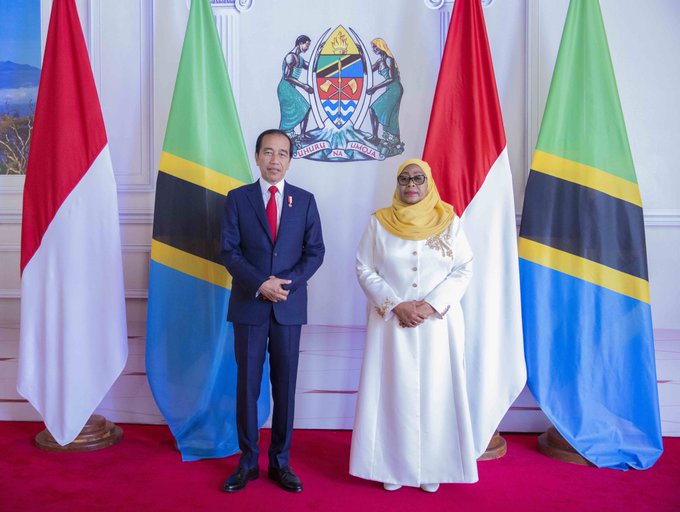In the intricate dance of international relations, nations constantly recalibrate their foreign policies to align with evolving global dynamics. Tanzania, with its rich history and strategic position in East Africa, is no exception. Tanzania’s foreign policy has witnessed significant transformations as the global landscape undergoes seismic shifts.
To comprehend Tanzania’s current foreign policy trajectory, glancing back is essential. Post-independence, under the leadership of Julius Nyerere, Tanzania adopted a non-aligned stance, emphasizing African unity, anti-colonialism, and self-reliance. This approach was rooted in Ujamaa (family hood) principles and was evident in Tanzania’s support for African liberation movements. Over the years, as Tanzania transitioned from a socialist-oriented economy to a more market-driven one, its foreign policy began reflecting these economic imperatives:
- Trade and Investment: Tanzania has actively sought foreign direct investment, leading to strengthened ties with major global economies, including China, India, and the European Union.
- Regional Integration: As a member of the East African Community (EAC), Tanzania has championed regional integration, recognizing the economic benefits of a unified East African market.
Tanzania’s Strategic Foreign Relations: China, Western Ties, and Global Strategy
Tanzania’s approach to foreign relations is emblematic of a nation keen on building strategic alliances, ensuring its growth and stability on the global stage. Central to this strategy is its ability to forge and nurture pivotal partnerships. A cornerstone of Tanzania’s foreign policy has been its deepening ties with China. This relationship has transcended diplomatic niceties, evolving into a robust economic partnership. China’s footprint in Tanzania is evident in its significant investments, particularly in infrastructure.
The trade volume between China and Tanzania has increased nearly 50-fold from less than US$100 million in 2000 to US$4.58 billion in 2020. The accumulative investment of Chinese companies in Tanzania has exceeded US$7 billion, with more than 700 investment projects. China has been Tanzania’s largest trading partner and most extensive source of foreign investment for several consecutive years.
The Julius Nyerere International Convention Centre (JNICC), the University of Dar es Salaam Library, and the Jakaya Kikwete Cardiac Institute (JKCI), built with Chinese assistance, have become new symbolic projects of China-Tanzania friendship. Notable projects, such as the Bagamoyo port and the Tanzania-Zambia railway, underscore China’s commitment to Tanzania’s developmental trajectory. These infrastructural endeavors bolster Tanzania’s economic landscape and solidify its strategic importance in China’s broader African outreach.
Currently, Tanzania has adeptly managed its relations with Western powers. While it maintains warm and cordial ties with nations in the West, Tanzania’s foreign policy showcases a nuanced balancing act. It ensures that while it engages with Western nations, it simultaneously nurtures its relationships with emerging global players. This approach ensures a diversified foreign policy portfolio, allowing Tanzania to navigate the complex geopolitics of the modern world, drawing benefits from multiple quarters without over-relying on any single entity.
Also, you can Read about Tanzania and Hungary’s diplomatic ties and relationship strengthening.
Nestled in a region historically marred by conflicts, Tanzania stands out as a beacon of stability and peace advocacy. Its approach to regional and global challenges underscores a deep-seated commitment to fostering peace and ensuring security:
Central to Tanzania’s peace initiatives is its emphasis on mediation and diplomacy. The nation has not shied away from stepping into the complex arena of regional conflicts, offering its good offices to broker peace. A case in point is its proactive role in the Burundi crisis, where Tanzania championed diplomatic avenues to navigate the tumultuous situation. Tanzania underscores its belief in peaceful resolutions over confrontational tactics by emphasizing dialogue and consensus-building.
Tanzania’s Diplomatic Expedition and Peacekeeping Legacy
Complementing its diplomatic endeavors, Tanzania has also showcased its commitment to peace through active participation in peacekeeping missions. Tanzanian forces, under the banner of the United Nations, have been on the frontlines of various conflict zones.
Their presence in these missions is a testament to Tanzania’s unwavering commitment to upholding global peace and stability. It reflects the nation’s ethos of advocating for peace and actively working towards it. Tanzania’s position in the regional landscape is as a passive observer and an active peacebuilder. The nation exemplifies its dedication to creating a harmonious and stable regional and global environment through diplomacy and peacekeeping. As Tanzania charts its foreign policy course, a few strategies emerge as pivotal:
- Diversification: Ensuring a diversified set of partnerships allows Tanzania to navigate global uncertainties more effectively.
- Capacity Building: Investing in diplomatic training and capacity building ensures that Tanzania’s foreign policy apparatus can handle complex global challenges.
- Public Diplomacy: Engaging in public diplomacy, including cultural exchanges and educational partnerships, can enhance Tanzania’s soft power on the global stage.
In summary, while rooted in its historical principles, Tanzania’s foreign policy shifts reflect a pragmatic approach to a changing global landscape. By balancing economic imperatives with strategic considerations and emphasizing peace and diplomacy, Tanzania seeks to carve out a niche for itself in the global arena.
Tanzania’s foreign policy journey offers insights into the challenges and opportunities faced by nations in an interconnected world. It underscores the importance of adaptability, vision, and principled diplomacy in navigating the intricate maze of international relations.

